UP IHR celebrates the Launch of Atty. Litong’s Book on Transitional Justice and Joins the Call for Accountability in Pursuit of Long-Term Peace and Justice
The UP Law Center Institute of Human Rights officially launched Senior Law Reform Specialist Atty. Glenda T. Litong’s latest publication, “Philippine Practices on Transitional Justice: Lessons Learned and Charting a Path Forward” in a dialogue with scholars, policymakers, and human rights advocates on November 5, 2025.
The event opened with welcoming remarks from UP College of Law Dean Gwen Grecia-De Vera, who emphasized that the book is both timely and highly relevant to the Philippine context. She described how transitional justice urges us to confront past and ongoing human rights violations, from the Martial Law victims seeking reparations, the struggles of Indigenous Peoples in the Bangsamoro Autonomous Region in Muslim Mindanao (BARMM), and to the families of the drug war seeking accountability. Dean Grecia-De Vera believes that the book launch event is an invitation to sustain the shared undertaking to bolster transitional justice as a mechanism for accountability.
Atty. Daniel D. Lising, M.D., Officer-in-Charge of UP IHR, also welcomed the guests and participants. He acknowledged how the gathering brought together a diverse community sharing a common commitment to human rights, justice and peace. He hopes that Atty. Litong’s book gives readers the opportunity to discuss how the Philippines has sought to address past harms and the lessons that may guide practitioners in building more responsive legal and institutional mechanisms.
Mamamayang Liberal (ML) Partylist Representative Leila de Lima, in her Keynote Speech, stated that the book is more than a compilation of practice but is a signal fire. She emphasized that at this moment in our national life, transitional justice becomes the steady work of protecting the light. Rep. de Lima believes that it is our responsibility to shape a uniquely Filipino model of transitional justice, built with truth at its center. She hopes that the work being done to support transitional justice in the country may strengthen into a daylight that stays steady and ordinary because justice has become embedded in the way we live.
In her lecture, Atty. Litong discussed the publication within the context of the unresolved war on drugs and corruption scandals and the five pillars of the transitional justice paradigm. She shared that her work at the UP IHR and as a member of the Human Rights Victims’ Claims Board (HRVCB) has shaped her understanding of the Philippine experience in terms of the law and the role it played in imposing trauma upon the Filipino people. In her discussion, Atty. Litong emphasized that transitional justice is an act of dealing with the past so the recurrence of widespread human rights violations, oppression, and abuse can be prevented. More importantly, transitional justice must respond to the victims’ rights and their needs resulting from these violations.
The event also featured three distinguished practitioners from the human rights field who provided valuable insights and reflections on the findings presented in Atty. Litong’s book. Dr. Aurora A. Parong, Co-Chairperson and Spokesperson of Philippine Coalition for the International Criminal Court, highlighted past efforts of the HRVCB in adjudicating the claims of Martial Law victims but recognized the book as a stepping stone to addressing persistent abuses and corruption. Atty. Joel R. Butuyan, Chairperson of CenterLaw, lauded how Atty. Litong discussed the need for truth commissions, the memorialization of atrocities, and nonmonetary reparations. Last but not least, Director Mary Joyce M. Crisanto from the Human Rights Policy Centers Office of the Commission on Human Rights (CHR) reflected that to chart a genuine path forward, the Philippines must reimagine transitional justice as a living and people-centered framework.
Professor Elizabeth H. Aguiling-Pangalangan, head of the UP IHR’s Child’s Rights Program and Philippine Representative to the ASEAN Commission on the Promotion and Protection of the Rights of Women and Children (ACWC), closed the program by affirming the UP IHR’s steadfast commitment to spearhead critical and nuanced work for all. She stated that, through Atty. Litong’s work, transitional justice is not merely a legal framework but a moral and societal commitment to truth, accountability and healing. Professor Aguiling-Pangalangan shared the hope that the UP IHR’s reflections on the Philippines’ past will guide the Filipino people in the future.

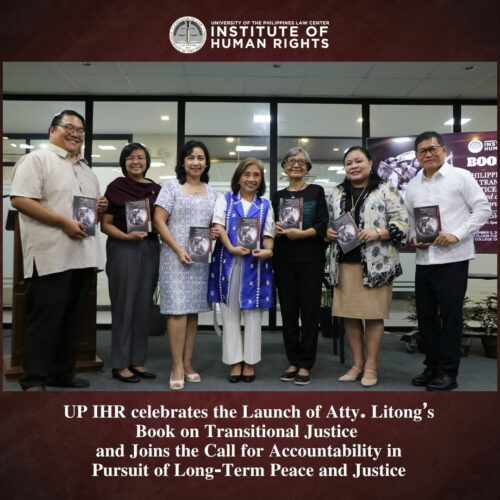
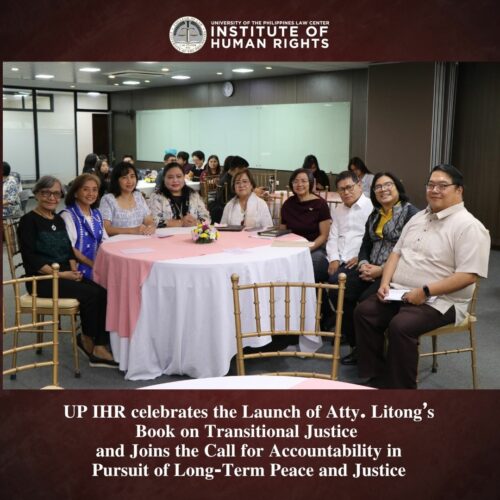
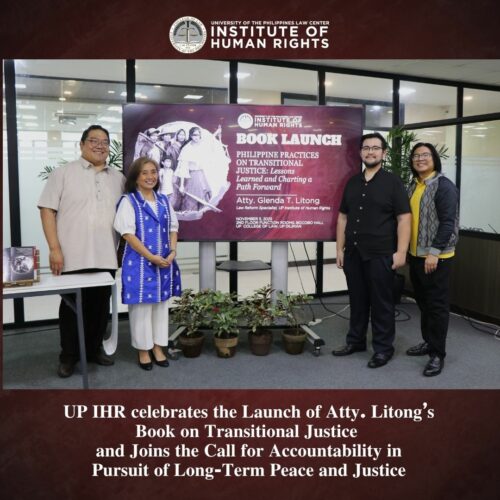
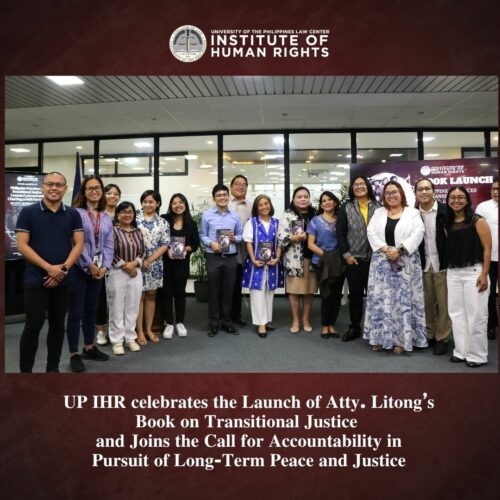
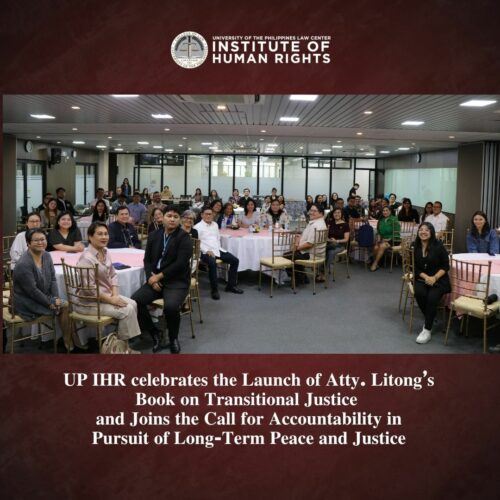
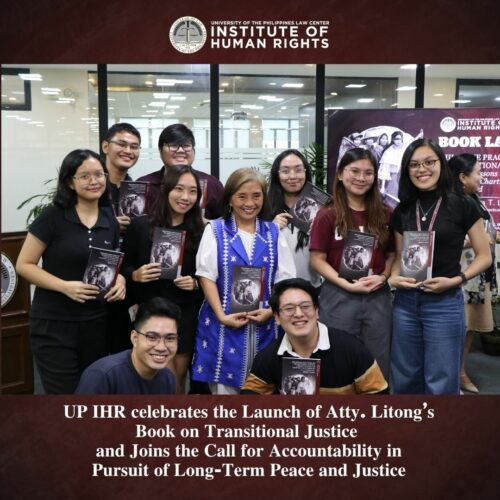
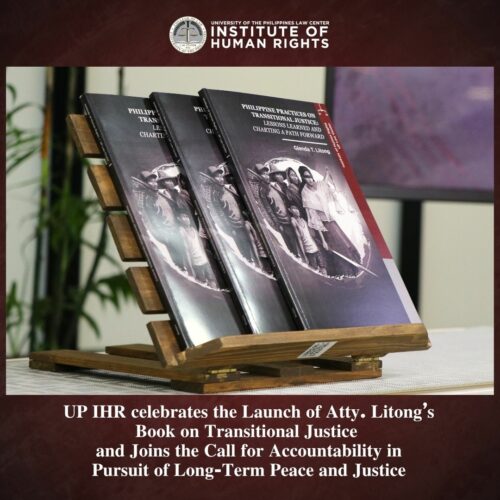






































































































 on the upper right corner to select a video.
on the upper right corner to select a video.